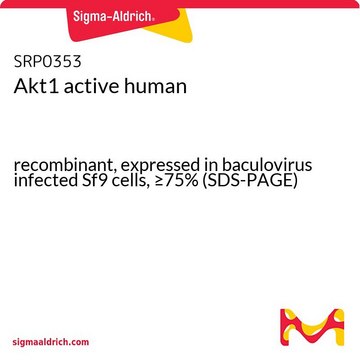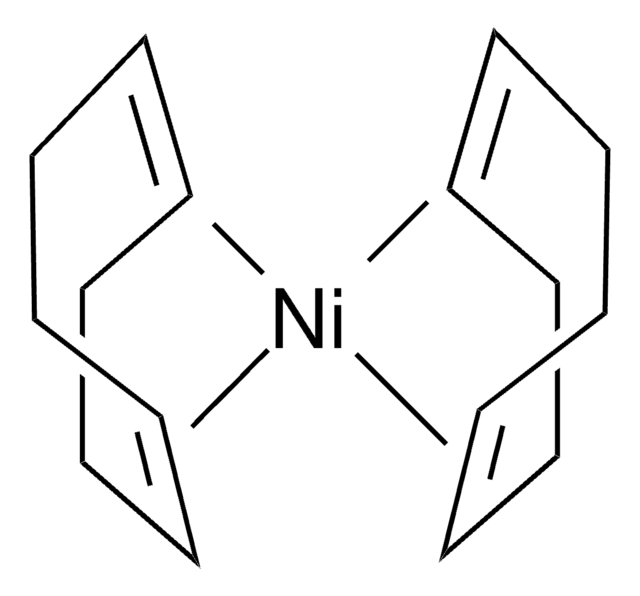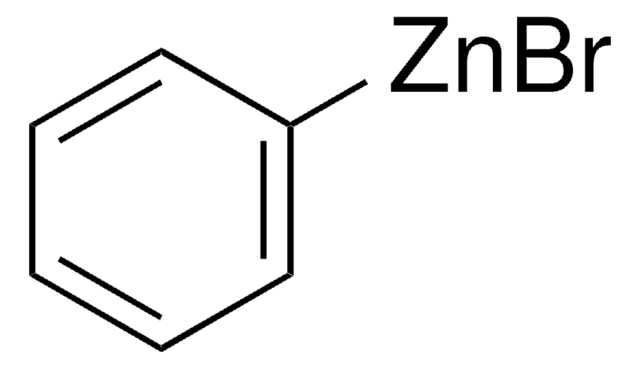14-276-M
Akt1/PKBα Protein, active, 15 µg
Active, recombinant full-length human Akt1, containing N-terminal His6 tag, for use in IP-Kinase Assays & Kinase Assays.
Synonym(s):
Protein kinase B alpha, Proto-oncogene c-Akt, RAC, RAC-PK-alpha
About This Item
Recommended Products
biological source
human
Quality Level
recombinant
expressed in baculovirus infected Sf21 cells
form
liquid
shelf life
1 yr
mol wt
Mw 59.9 kDa
manufacturer/tradename
Upstate®
technique(s)
activity assay: suitable (IP-kinase)
activity assay: suitable (kinase)
solubility
soluble
NCBI accession no.
UniProt accession no.
storage temp.
−70°C
Gene Information
human ... AKT1(207)
General description
Product Source: Expressed by baculovirus in Sf21 insect cells
Recombinant full-length human Akt1, containing N-terminal His6-tag.
Biochem/physiol Actions
Target Sub-Family: AGC
Akt, also known as protein Kinase B (PKB), is a crucial protein involved in various cell signaling pathways. It modifies and controls the activities of numerous proteins involved in a wide range of cellular and physiological processes. Some of these processes include cell survival, apoptosis, cell proliferation, transcription, cell migration, and metabolism. Akt also helps in influencing angiogenesis, and normal development of embryos. Akt regulates cell survival through the phosphorylation of mitogen-activated protein kinase kinase kinase 5 (MAP3K5), which is involved in the cellular apoptotic response. The Akt occupies a pivotal position in the phosphoinositide 3-kinase-protein kinase B-mammalian target of rapamycin (PI3K-PKB-mTOR) signaling pathway. Genetic mutations occurring upstream of Akt in this cascade can result in uncontrolled cell proliferation and the development of cancer. In addition abberent Akt activation is associated with the development of type-2 diabetes.
Packaging
Quality
Physical form
Storage and Stability
Other Notes
Legal Information
Disclaimer
Signal Word
Danger
Hazard Statements
Precautionary Statements
Hazard Classifications
Eye Irrit. 2 - Repr. 1B - Skin Irrit. 2 - Skin Sens. 1
Storage Class Code
6.1C - Combustible acute toxic Cat.3 / toxic compounds or compounds which causing chronic effects
WGK
WGK 2
Certificates of Analysis (COA)
Search for Certificates of Analysis (COA) by entering the products Lot/Batch Number. Lot and Batch Numbers can be found on a product’s label following the words ‘Lot’ or ‘Batch’.
Already Own This Product?
Find documentation for the products that you have recently purchased in the Document Library.
Our team of scientists has experience in all areas of research including Life Science, Material Science, Chemical Synthesis, Chromatography, Analytical and many others.
Contact Technical Service










